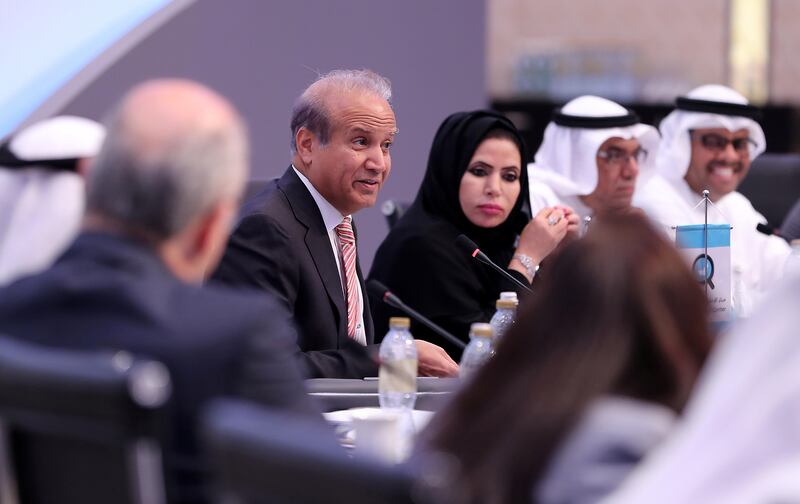Potential solutions to the Qatar crisis were laid out in a discussion between regional political experts in Abu Dhabi on Monday.
During a workshop on Qatar’s policies and ambitions hosted by the Emirates Policy Centre, a number of options were suggested to solve the crisis between Qatar and a quartet of Arab countries.
The dispute erupted on June 5 when Saudi Arabia, the UAE, Bahrain and Egypt boycotted the country politically, diplomatically and economically in response to Doha’s policies that they say support and finance terrorism. They also accuse Qatar of moving closer to Iran.
The crisis has led to a regional polarisation between Qatar, Turkey and Iran on one side and the Arab quartet and other countries on the other.
Qatar’s foreign minister Sheikh Mohammed bin Abdulrahman admitted on Monday that Qatar was moving closer to Iran economically, and blamed the boycott.
He was speaking after Bahrain's foreign minister, Sheikh Khalid bin Ahmed Al Khalifa, told The National this week that the boycott of Qatar will "continue as long as it takes" for Doha to change its behaviour.
Speaking at the event in Abu Dhabi on Monday, Abdulrahman Alrashed, the former editor-in-chief of Arabic newspaper Asharq Al Awsat, said few options were available in case political mediation failed and the current Qatari government was unable to provide reasonable solutions.
“The first one is to maintain Qatar’s isolation,” he said. “The second is to increase pressure gradually and the third is to move to a change of the regime, which is a far-fetched solution.”
“We agree that the crisis may last long or may be settled in a radical way though there are so signs on the horizons about that,” the board member of Saudi Research and Marketing Group said.
____________
Read more:
Qatar admits it is close to Iran since boycott
Qatar will soon discover the steep price of sponsoring terrorism
Saudi foreign minister condemns Qatar for supporting terrorism at UN
____________
He said the quartet is adopting a unique position that “makes it very hard for Qatar to play a role in the region while having differences with these main Arab countries”.
“It’s an irrational crisis because it could’ve been settled if the demands were met by Qatar. It has to do with security and what’s requested now is to respond to these demands - Qatar must know that enough is enough.”
Meshal Al Nami, a political scientist from Kuwait said GCC countries do not have a clear diagnosis of the problem which is hindering finding a solution and options.
“Our problem is we have to sort out the accumulation of 21 years in one year. This crisis will be prolonged maybe to one year but we can’t sort out such problems in such little time.”
Zafer Alajmi, director of the Gulf Monitoring Group in Kuwait, expressed more optimism. “There is a keenness in the GCC for reconciliation,” he said. “The problem in the Gulf is we haven’t sat down with opponents so we should focus on that.”
“If it is not resolved, we will then delve into a prolonged crisis and we are not interested in it dragging on for a long period of time.”
Dr Mohammed Kawas, political researcher and journalist at Al Arab Publishing said the solution might be a Gulf one but that “monitoring could be done internationally.”
___________
Read more:
Slaughterhouse operator is the only Qatari stock showing signs of life
Trump says Qatar crisis will be resolved quickly
___________
The crisis offers the chance for a new format to preserve the GCC and protect its existence, Dr Ebtisam Al Ketbi, president of the Emirates Policy Centre said.
“Appeasement and cooling down the crisis by continuing the boycott without any additional escalation is the most probable scenario,” she said.
An alternative Gulf system in which the UAE and Saudi played a pivotal role while weakening the Qatar-Iran tendency, was suggested at the forum. “There are clear trends that show fundamental problems in the Gulf and Arab systems,” said Dr Abdullah Ould Bah, professor of philosophy and Islamic studies at the University of Nouakchott in Mauritania. “This means working on integrating Iraq and Syria. This has to be our main concern in the coming years. The crisis with Qatar isn’t an individual one - it’s a symptom of this fundamental misbalance that the Gulf system is witnessing.”






